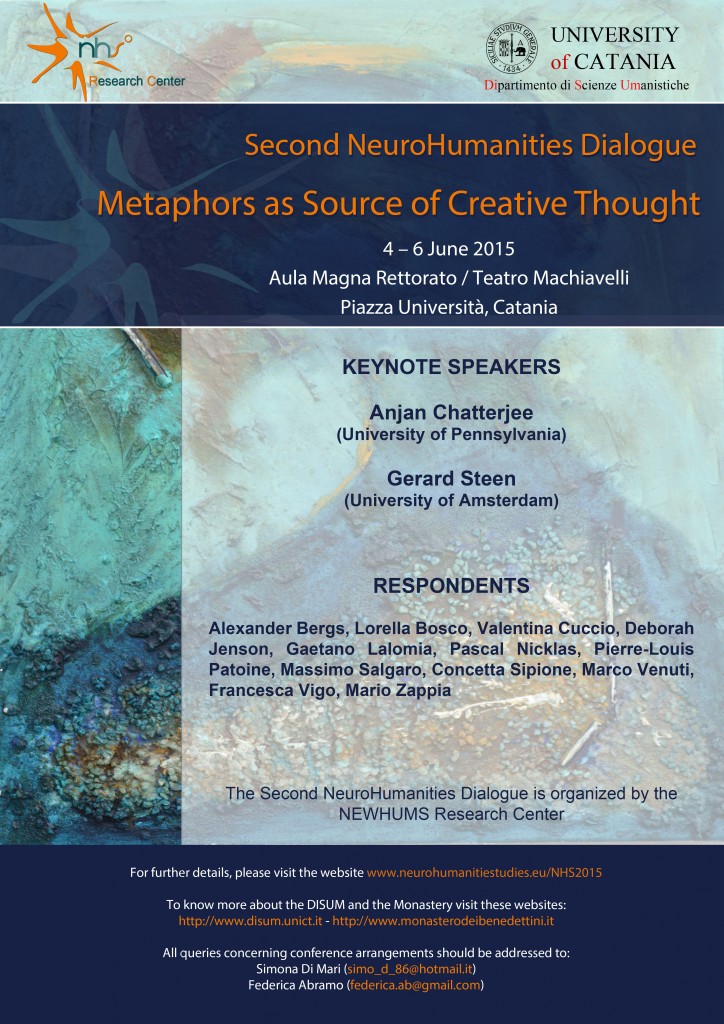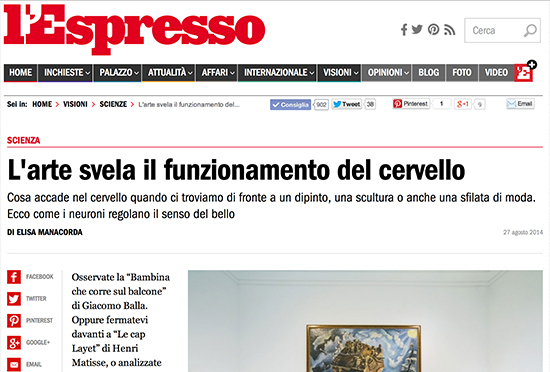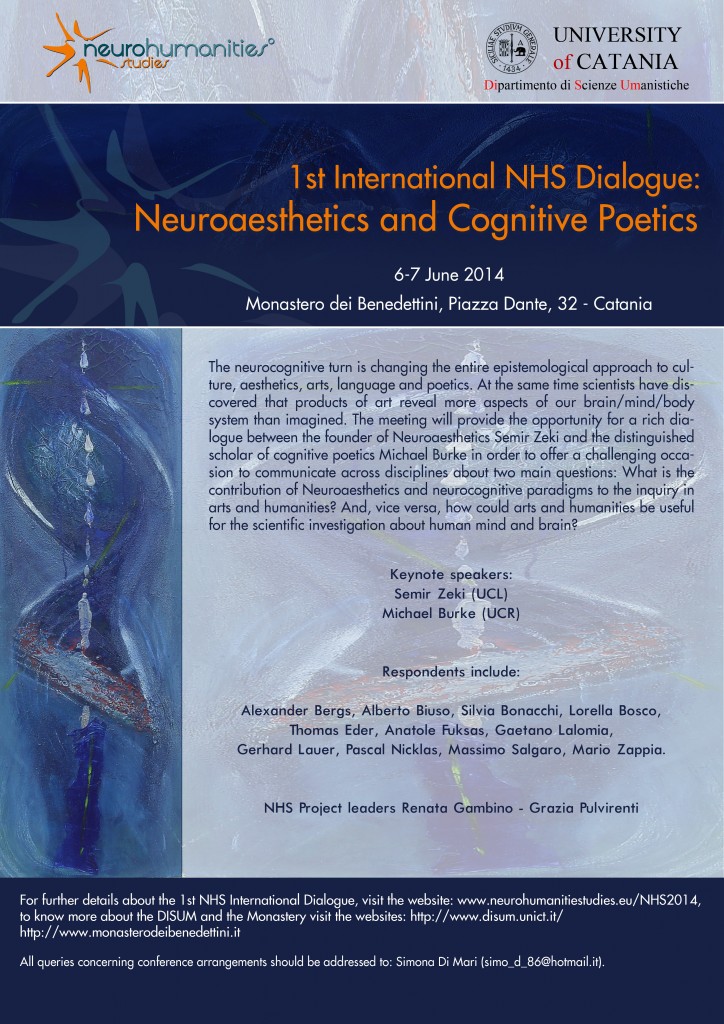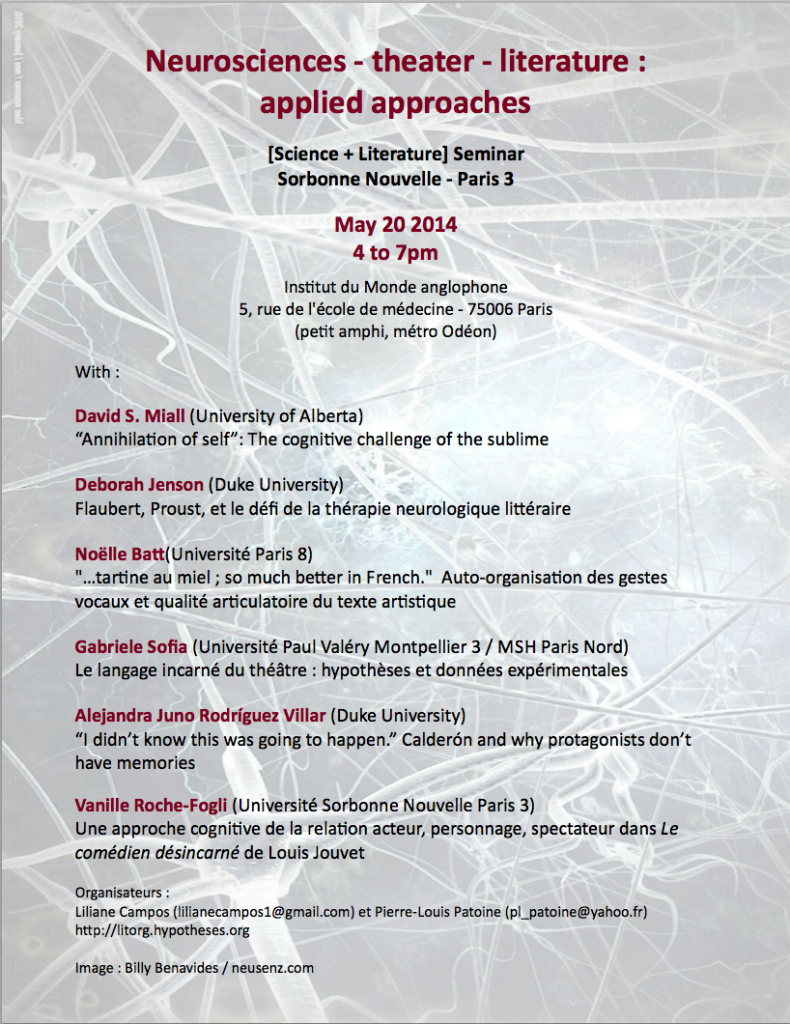CFP: Cognitive Future in Humanities 2016
University of Helsinki, Finland
13-15 June 2016
http://blogs.helsinki.fi/coghum-2016/
Organisers:
Merja Polvinen
Karin Kukkonen
In cooperation with:
Department of Modern Languages, University of Helsinki
Federation of Finnish Learned Societies
Confirmed plenary speakers:
Peter Garratt (Durham)
Pirjo Lyytikäinen (Helsinki)
Anne Mangen (Stavanger)
Jean-Marie Schaeffer (CNRS)
Deirdre Wilson (UCL)
Building on the conferences associated with the network Cognitive Futures in the Humanities in Bangor (2013), Durham (2014) and Oxford (2015), the 2016 conference in Helsinki aims once again to bring together a wide array of papers from the cognitive sciences, philosophy, literary studies, linguistics, cultural studies, critical theory, film, performance studies, musicology and beyond.
In accordance with the original purpose of the network, the aims of the conference are:
(1) to evolve new knowledge and practices for the analysis of culture and cultural objects, through engagement with the cognitive sciences
(2) to assess how concepts from the cognitive sciences can in turn be approached using the analytical tools of humanities enquiry (historical, theoretical, contextual)
(3) to contest the nature/culture opposition whose legacy can be identified with the traditional and ongoing segregation of scientific and aesthetic knowledge.
We continue to examine these issues through a variety of approaches from cognitive sciences and the humanities, and draw on methods ranging from quantitative research to critical theory. The topics studied include mindreading or mentalizing, embodiment, ‘bio’ narratives and biocentrism, perception and memory, affect and emotion, performance, movement and kinesis, subjectivity/qualia and the narrated self, conceptual blending, multimodality, linguistic creativity and figurative language, bilingualism/multilingualism, translation and digital text processing.
To examine these and other related phenomena, we invite proposals addressing e.g. the following questions:
- How are cognitive universals related to sociohistorical particulars?
- What changes have taken place in conceptualisations of cognition, and what are the connections of those changes to cultural and historical contexts? Read the rest of this entry »





